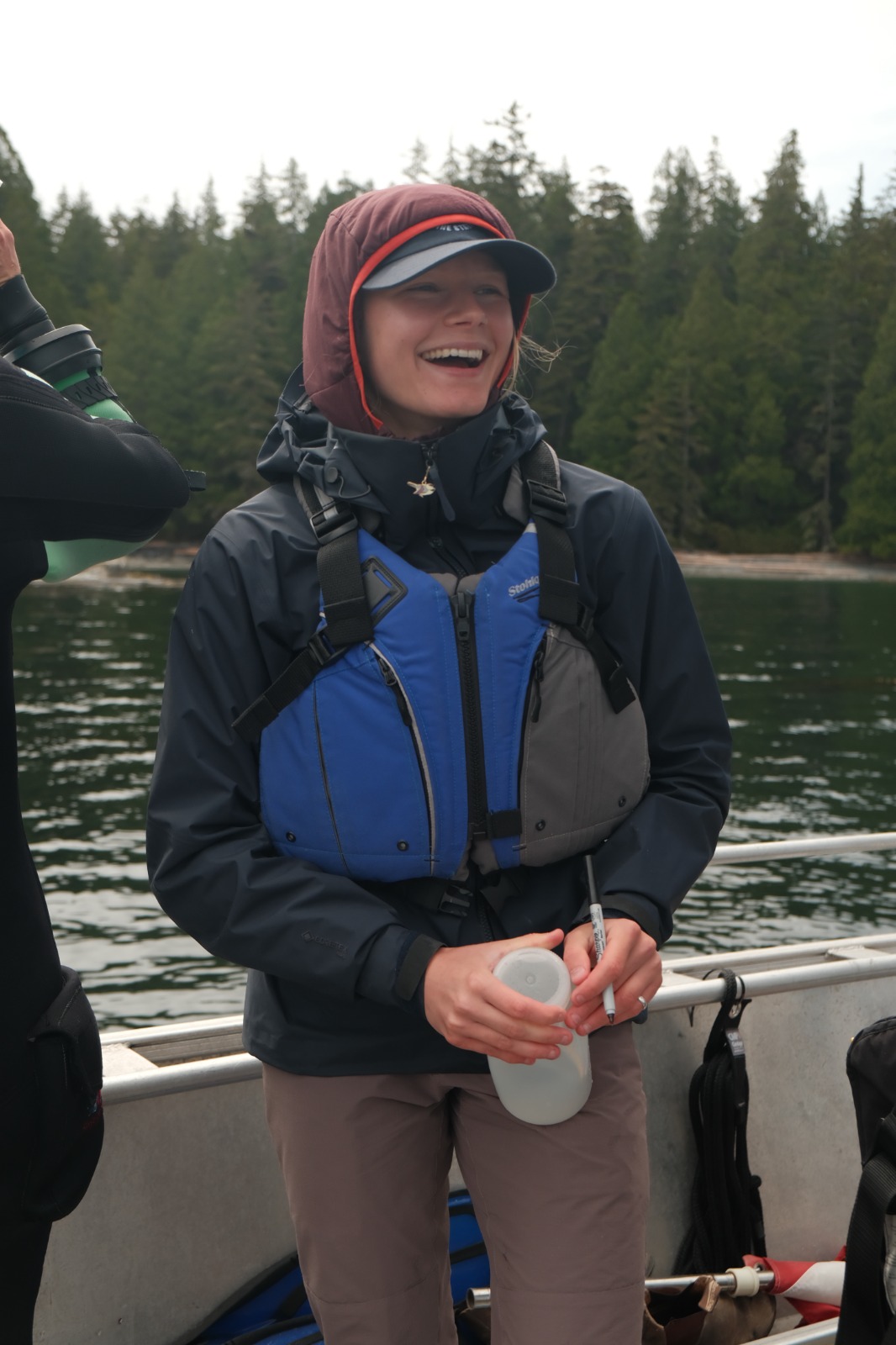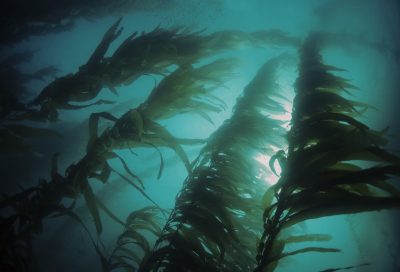|
We want to highlight some of the people who make the IOF a better place to work and study in, and so we sat down with Grace Melchers to talk about her research and her advice for any woman or girl wanting to go into science. Melchers is a Master’s student at the Pelagic Ecosystems Lab at the IOF and has worked at the Kelp Rescue Initiative and Stream and Riparian Research Lab.
Grace Melchers
 Photo credit: Kiara Kattler Where are you from?
I was born in the UK in a town called Norwich, but we moved to Ontario when I was almost two years old. I didn’t grow up anywhere near the ocean but I really wanted to see the mountains and the ocean, so I moved to Vancouver to do my undergraduate at UBC.
What were your previous studies in?
I studied forestry at UBC and completed a Bachelor’s of Science in Natural Resource Conservation.
How did you transition from forestry to the IOF?
Even though I studied forestry, my program was still kind of fish oriented. In the last couple of years, we learned a lot about Pacific salmon. Some of the major points of tension with the forestry industry are salmon bearing streams, so we learned a lot, mostly about the freshwater side of restoring salmon habitat, and a bit about marine science. However, that summer, I became really interested in kelp. You don’t really have kelp in freshwater so I moved towards marine sciences, and found Dr. Brian Hunt who let me work in the Pelagic Ecosystems Lab as an undergraduate research assistant.
I was able to do some fieldwork up on Quadra Island with the Hakai Institute and Dr. Hunt’s juvenile salmon program. Being on the boat and getting to see kelp in the wild, that was amazing.
What are you researching for your Master’s?
 Photo by Marcos Paulo Prado on Unsplash So far, my research has kind of been turning to both, so I like to say that I’m studying environmental DNA in nearshore ecosystems in urban and non-urban environments. That’s the tagline I’ve been using lately because things have been changing so much. But those are the constants.
What has your experience as a woman in science been like?
I think when I was younger, I realized that young women growing up in my mother’s era didn’t really talk about what it is like to be a woman in underrepresented fields. However, that generation passed on to us, and now the message is that you can be whatever you want to be and see other women do the same.
Growing up, I was always told that being a woman is powerful and that the representation in science was really getting better. I’ve definitely gotten reality checked over the past few years when I entered the working world, where, yeah, we can do anything a man can do but there are still societal barriers to being for a woman, and you’re kind of reminded of that every now and then. There are still prejudices and assumptions, and I don’t think people recognize that there are still unconscious biases.
Now, you have to transition to asking people to check their internal biases and how that influences their perceptions, rather than targeting very external issues.
What have been some of the negatives?
It can be so reactive, because a person might think that they’re supporting and uplifting women, but their actions are not reflecting that. It’s hard to call people out who don’t understand what they’re doing wrong. It’s definitely a different thing to be dealing with compared to our mother’s generation. Better, but still difficult at times.
Around you, there are people who support you and support women but sometimes, in higher positions of power, there are people who are still one or two generations behind in their thinking. So while it seems that everything has changed, there are still people who have influence over your career that don’t quite understand.
 Kelp. Image by Jack Drafahl from Pixabay Do you have any words of advice for women and girls in science today?
When I think about what it’s like to be a woman in science, or to just be a woman in any field, I feel powerful. The power that women have, the power they bring to their work and communities — it uplifts everyone around them. Try to find mentors and colleagues that are driven and who uplift the women around them.
Also, you have to be confident but humble. Acknowledge that you’re a good scientist but be willing to check yourself and know that mistakes don’t impact your character.
I notice a lot of little differences in people, and I notice that men tend to be a lot more confident with their research and their work. Women struggle a lot with imposter syndrome and it’s not talked about enough. It fliers under the radar, but it makes such a huge difference. Look, I don’t have an oceanography background but I’m in oceanography, and oftentimes, I feel like I shouldn’t be here. You just have to project confidence and understand that wherever you want to be is where you are meant to be. |
|
International Day of Women and Girls in Science
Here are just a few statistics by the United Nations on why uplifting women and girls, especially in science, is so important today and every day.
- Women are typically given smaller research grants than their male colleagues and, while they represent 33.3% of all researchers, only 12% of members of national science academies are women.
- In cutting edge fields such as artificial intelligence, only one in five professionals (22%) is a woman.
- Despite a shortage of skills in most of the technological fields driving the Fourth Industrial Revolution, women still account for only 28% of engineering graduates and 40% of graduates in computer science and informatics.
- Female researchers tend to have shorter, less well-paid careers. Their work is underrepresented in high-profile journals and they are often passed over for promotion.
Our Institute would not be as successful without the individual and collective contributions of the women and girls who have made science their life’s work.
|


